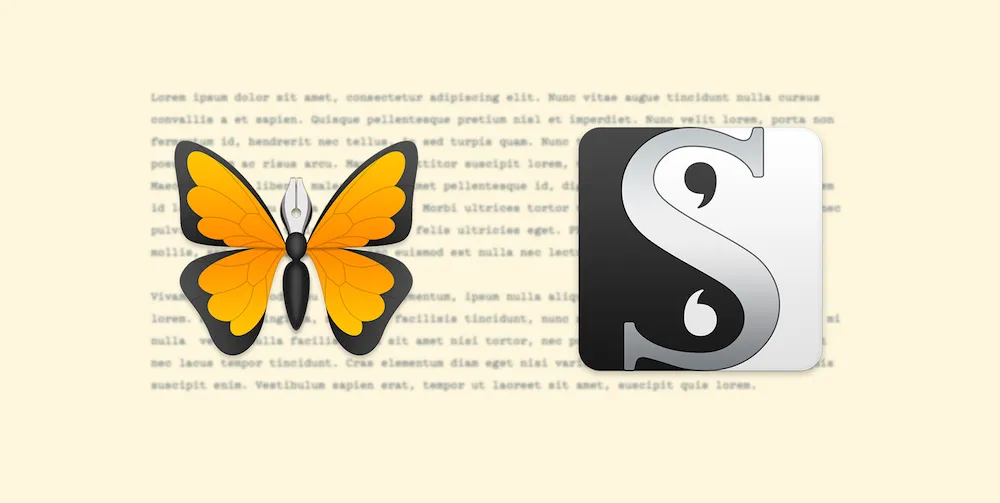Overview of Scrivener and Ulysses
When it comes to longform writing, both Scrivener and Ulysses have established themselves as leading applications. Writers often find themselves torn between these two powerful tools. Each offers unique features tailored to enhance the writing process. In this article, we will explore the strengths and weaknesses of both Scrivener and Ulysses, ultimately helping you decide which app best suits your longform writing needs.
Key Features Comparison
| Feature | Scrivener | Ulysses |
|---|---|---|
| Platform | Windows, macOS, iOS | macOS, iOS |
| Organizational Tools | Comprehensive corkboard and outliner | Sheet-based structure with groups |
| Writing Environment | Rich text editor with formatting options | Minimalistic, distraction-free interface |
| Research and Reference | Built-in research folder | Markdown support for linking |
| Export Options | Multiple formats including ePub and PDF | Simple export to various formats |
| Pricing | One-time purchase ($49) | Subscription-based ($5.99/month) |
Organizational Tools
One of the most significant aspects of longform writing is organization. Scrivener excels in this area with its corkboard and outliner features. Writers can easily break down their projects into manageable sections, moving them around as needed. The ability to create folders and subfolders provides a clear structure, making it easier to navigate through complex narratives or research-heavy documents.
On the other hand, Ulysses adopts a simpler sheet-based structure. While it allows users to categorize their writing into groups, it may not offer the same depth of organizational tools as Scrivener. However, many users appreciate Ulysses' streamlined approach, which can be less overwhelming for those who prefer a more straightforward writing environment.
Writing Environment
Both apps provide unique writing environments tailored to different preferences. Scrivener’s rich text editor offers various formatting options, allowing writers to see their work as it will appear in the final product. This feature is particularly useful for projects that require detailed formatting, such as novels or academic papers.
In contrast, Ulysses takes a minimalistic approach with its distraction-free interface. It focuses on the writing itself, eliminating unnecessary clutter. This can be beneficial for writers looking to immerse themselves in their work without being sidetracked by formatting options. The use of Markdown in Ulysses also allows writers to format text quickly and efficiently, which can enhance productivity.
Research and Reference Capabilities
When it comes to research, Scrivener has a clear advantage with its built-in research folder. Writers can import documents, images, and web pages directly into their projects, allowing for easy access to reference materials. This feature is particularly beneficial for authors working on nonfiction or research-intensive projects.
Ulysses, while lacking a dedicated research folder, supports Markdown linking, enabling writers to create connections between their notes and drafts. This functionality can be useful for writers who prefer to keep their research separate but still easily accessible. While it may not be as comprehensive as Scrivener’s offerings, Ulysses provides enough flexibility for many writers’ needs.
Export Options
Exporting your final work is crucial in the writing process, and both apps provide various options. Scrivener allows for a multitude of formats, including ePub, PDF, and Word, making it ideal for writers preparing manuscripts for submission or publication. The robust export options cater to a wide range of publishing needs.
Ulysses offers a more streamlined export process, making it easy to output work in various formats. However, it may not have the same extensive range of options as Scrivener. For writers focused primarily on blog posts or articles, Ulysses' simplicity can be a significant advantage, allowing for a quick and efficient export.
Pricing Structure
Another important factor to consider is pricing. Scrivener operates on a one-time purchase model, costing $49. This can be appealing for writers who prefer to pay once rather than commit to a subscription. Once purchased, users receive all updates and new features without additional costs.
In contrast, Ulysses uses a subscription-based model, costing $5.99 per month. This may seem more affordable upfront, but over time, it can add up. However, the subscription model allows Ulysses to continually update and improve its features, which can be beneficial for users who value ongoing enhancements.
Conclusion
Ultimately, the choice between Scrivener and Ulysses depends on your individual writing style and needs. If you prioritize extensive organizational tools and robust research capabilities, Scrivener may be the better choice for your longform writing projects. On the other hand, if you prefer a minimalistic interface that enhances focus and efficiency, Ulysses could be the right fit.
Both applications have their strengths and weaknesses, making them suitable for different types of writers. Consider your specific requirements and writing habits to determine which app will best support your longform writing journey.





